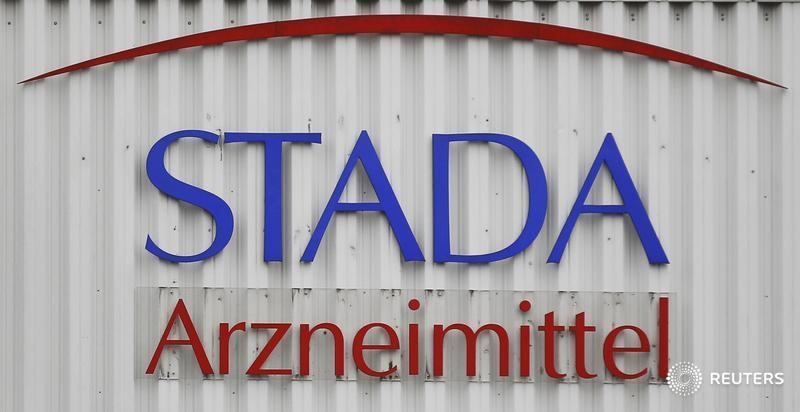By Claire Ruckin
LONDON, Aug 31 (Reuters) - With almost 10 billion of leveraged loans set to launch in Europe's leveraged loan market in September, bankers are wary that some of the smaller, low-profile deals may find it difficult to capture investor attention.
Investors have been anticipating the launch of a number of jumbo financings for some time, including a 1.95-billion term loan for German generic drugmaker Stada STAGn.DE that is scheduled to be shown at a bank meeting on September 7 and around 1 billion of term loans that form part of a wider US$7.75 billion-equivalent buyout financing backing U.S. life sciences company Avantor's take-private of lab supplies company VWR Corp VWR.O .
Other 1-billion-plus deals on investors' radars include UK payment processing company Paysafe PAYS.L, Canada-based drinks bottler Cott Corp BCB.TO and Jersey-based intellectual property services provider CPA Global.
"There will be some nervous bankers out there. It is a concern that there are a lot of deals coming and a lot of demand on capital, so not every deal will be a must have. The likes of Stada will be so big that they will command the attention of investors who will need to get on them, as they can't be a main player without some exposure to them," a syndicate head said.
While investors have been preparing for these larger deals in a bid to get orders in quickly and secure decent allocations, they have been less focussed on the glut of smaller deals that are also set to hit the market.
"We will focus on the larger deals, which will have issues we need to consider and risks we will need to mitigate but they will be the primary focus. The smaller deals will be after thoughts," an investor said.
BIGGER IS BETTER
The larger deals present investors with an opportunity to put significant amounts of cash to work and paired with weakening loan documentation are very attractive as they offer a higher level of liquidity compared to the smaller deals.
While smaller deals used to offer more protections, the erosion of covenants and documents at the lower end of the syndicated market has led many investors to think bigger is better.
Borrowers with retail exposure, weak documents or bad results are likely to be more vulnerable, bankers said.
"You have to ask which deals will fall by the wayside. The loans that need a lot of work or are easy to decline will struggle. If the loans are small and covenant-lite or the businesses have been trading badly, those are the ones I would be nervous about," the syndicate head said.
CAPACITY
The emergence of a number of deals at the same is expected to cause capacity issues internally at some funds as they struggle to attend all the bank meetings and take a view on the credits within the two-week timeframe typically given for syndication.
Instead, many investors will opt to cherry-pick the deals they perceive to have the greatest chance of getting approval from internal committees, shunning the rest.
This practice has occurred since June 2017, when a rush of new deals hit the market, leading some borrowers to attain the best terms, while the riskier loans limped over the finishing line.
"While most things generally cleared market smoothly pre-summer, there were one or two notable dogs. If a bank has underwritten something on the racier side, be it by sector or structure, then they may be slightly more nervous than someone who has underwritten a Double B type credit, which although pricing and docs-wise may be aggressive, ticks the credit boxes. There is still good liquidity to be deployed but investors won't be piling in stupidly," a second syndicate head said.
Capacity issues at some of the larger funds could play into the hands of some of the smaller funds that may end up getting a more prominent allocation on deals.
"There is risk attached to smaller deals. We will naturally decline a number of them as we will be flooded with deals, so people lower down the pecking order will get a good look in," a second investor said.
Despite some recent volatility in the wider financial markets from macro events such as North Korea and Hurricane Harvey, leveraged loan bankers and investors seem fairly positive with the outlook, which should give underwriters a certain degree of confidence to launch deals quickly and de-risk having held a large amount on the books over the summer period.
"Defaults are low, there is lots of demand, the backdrop is okay and supported and people are not overly nervous at the outlook. The central banks have the potential to unsettle the broader markets, which could have a knock on effect and could well derail the current status quo, as could North Korea dropping a bomb on Japan," the second investor said.
(Editing by Christopher Mangham)
